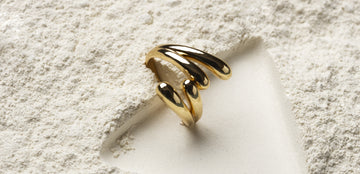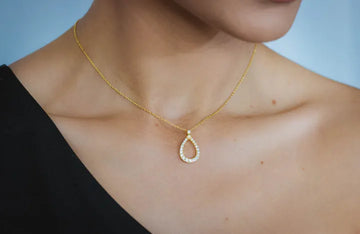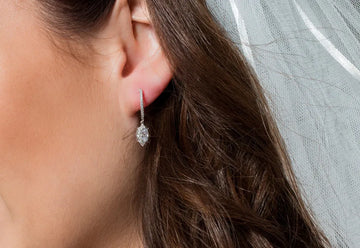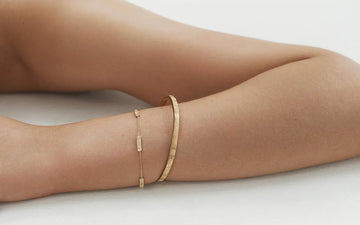Getting Started

Research and Planning: Two Key Starters for Jewellery Business
Launching a jewellery business, especially online, can be exciting. However, the industry is fiercely competitive, and simply having lovely items isn't enough. Conducting market research is crucial for increasing sales and outperforming your rivals. Making wise decisions when considering new jewellery collections and advertising efforts is essential. Market research gives you a quick look at changes, and when done right, it offers many options. One common mistake new businesses make is neglecting thorough market research. The initial excitement and sales catch them up, and they overlook the importance of understanding their target audience. This can lead to short-lived success and eventual failure.
What is Jewellery Market Research?
Jewellery market research is about acquiring information about the jewellery sector. It allows us to understand better how the market affects manufacturers and sellers. Jewellery has become more accessible in recent years, with businesses selling high-quality pieces at various prices. Jewellery is also culturally significant, reflecting status or serving a purpose in religious events.

Why is Jewellery Market Research Important?
Market research offers vital insights into the jewellery sector. This knowledge is crucial for several reasons.
- Understanding Popular Brands and Trends: Research identifies popular jewellery brands and global trends. This enables enterprises to stay ahead of the curve and provide appealing items.
- Understanding the Role of Jewellery in Society: It is no longer limited to a single age or gender. According to research, it is popular across various groups, including young people and men.
- Identifying Popular Jewellery Types and Innovations: The jewellery industry is huge. Some brands specialise in specialised products, such as rings or bracelets. Research indicates the most popular types of jewellery, as well as any new industry trends or inventions.
- Comparing Firms and Private Sellers: Market research identifies the contrasts and strengths of established jewellery firms against independent sellers. This knowledge is critical to competitive positioning.
- Understanding Materials and Production Methods: Research helps understand the materials and manufacturing methods utilised in jewellery making. This insight can help with product development and sourcing selections.
- Comparing Different Market Segments: Market research compares mainstream and luxury jewellery markets. This comparison helps firms identify distinct consumer categories and customise their services accordingly.
Creating a Detailed Business Plan:
When the market is determined, the next step is to create a detailed business plan. This plan acts as a roadmap, outlining your goals, strategies, finances, and operations. It's also essential if you need funding from investors or banks.

source: How to Write Business Plan
Here's what to include in your jewellery business plan:
- Business model: Decide how you will function. Will you sell online, in a physical store, or both? This decision has a wide-ranging impact on your business.
- Product planning: Describe your jewellery collection. What will be your main offerings? What distinguishes your pieces? Determine your pricing plan to secure profit. This section should clearly identify your unique selling proposition (USP).
- Create a daily workable plan: This covers your manufacturing process. Decide if you will make the jewellery yourself or work with manufacturers. Also, examine your staffing requirements, if any.
- Establish short- and long-term business goals: These objectives should be explicit and measurable. A short-term goal could be to sell a certain number of units during the first six months. Long-term goals could include opening a second location or launching a new product line. Establish metrics to monitor your progress toward these objectives.
- Create a budget: This should cover all startup expenses, such as equipment and early inventory. Consider continuous running expenses, such as rent, marketing, and materials. Finally, use expected revenue data to determine your prospective earnings.
Finding Your Perfect Niche:
Finding the correct niche is critical to long-term success. You may distinguish yourself and establish a devoted consumer base by focusing on a specialised market sector. Here are some important tactics for discovering a profitable jewellery niche:
- Provide Unique Value: The online jewellery market is very crowded. To stand out, you need a unique selling point. This might mean using special materials, like gemstones from ethical sources or recycled metals. You could also focus on a certain style, like minimalist, bohemian, or vintage. Simple things, like clear and interesting product descriptions, can help you be different. Instead of using fancy language, tell customers about each piece's materials, craftsmanship, and history.
- Understand Your Target Demographic: It is important to understand who your ideal customer is. Think about things like age, gender, location, and how they shop. For example, men usually like to shop on mobile devices. They care more about quality than price. Women, however, may look for affordable products. They often use computers to browse. This knowledge can help you plan your marketing strategies.
- Validate Market Demand: Before investing heavily in inventory, ensure there's actual demand for your products. Use tools like Google Keyword Planner to research search volumes for relevant terms. This helps you gauge interest and avoid investing in products with low demand. Be mindful of competition; high search volumes may indicate a crowded market.
- Analyse Your Competitors: Studying your competitors can reveal valuable insights. Determine their strengths and flaws, then seek ways to separate your brand. How can you provide something they don't? This analysis assists you in fine-tuning your specialty and establishing your own market presence.
- Look Within: Sometimes, the best niche comes from your own passions and interests. What kind of jewellery are you most passionate about creating? What are your hobbies and personal experiences? These can inspire unique product lines and brand stories that resonate with specific audiences. Turning your passion into a business can lead to authentic and engaging products.
Final Thoughts
Jewellery market research empowers businesses and individuals to make informed decisions. It provides crucial information that enables them to be competitive in the market. By understanding consumer preferences, market trends, and competitive landscapes, businesses can develop effective product development, marketing, and sales strategies. This research is essential for anyone looking to succeed in the dynamic jewellery world.
Finding the proper niche isn't about uncovering a hidden gem but developing something distinctive and worthwhile. You can build a successful and lasting jewellery business.
Start by doing thorough research. Identify your target audience. Focus on what you love. Remember that a perfect niche does not exist from the start; it develops and improves over time as you learn and adapt.
A well-structured company strategy is an essential instrument for achieving success. It gives guidance, aids in acquiring funds, and improves your chances of meeting your business objectives. By carefully examining these crucial factors, you'll be well on your way to establishing a successful jewellery business.







